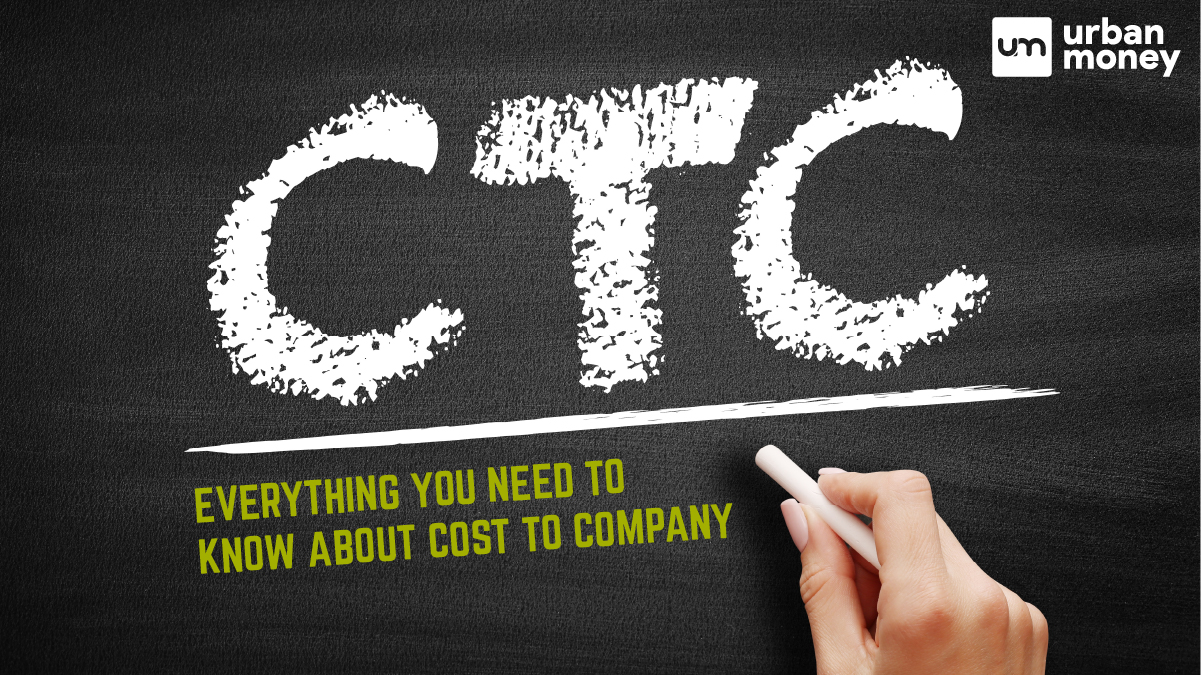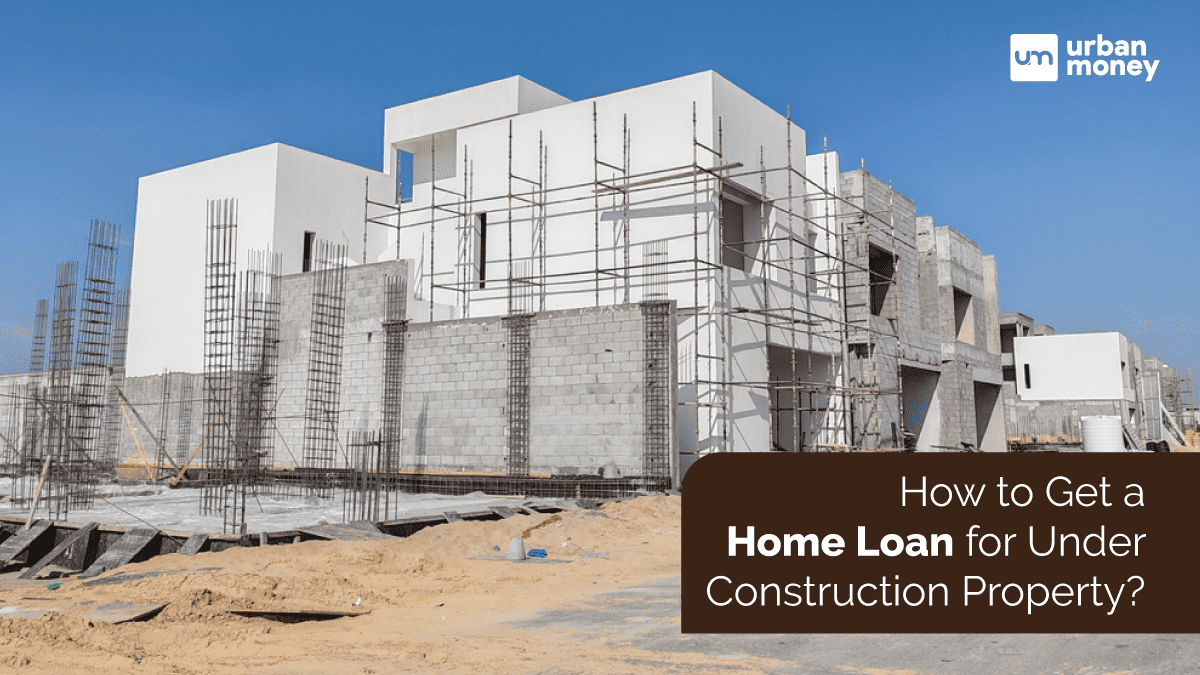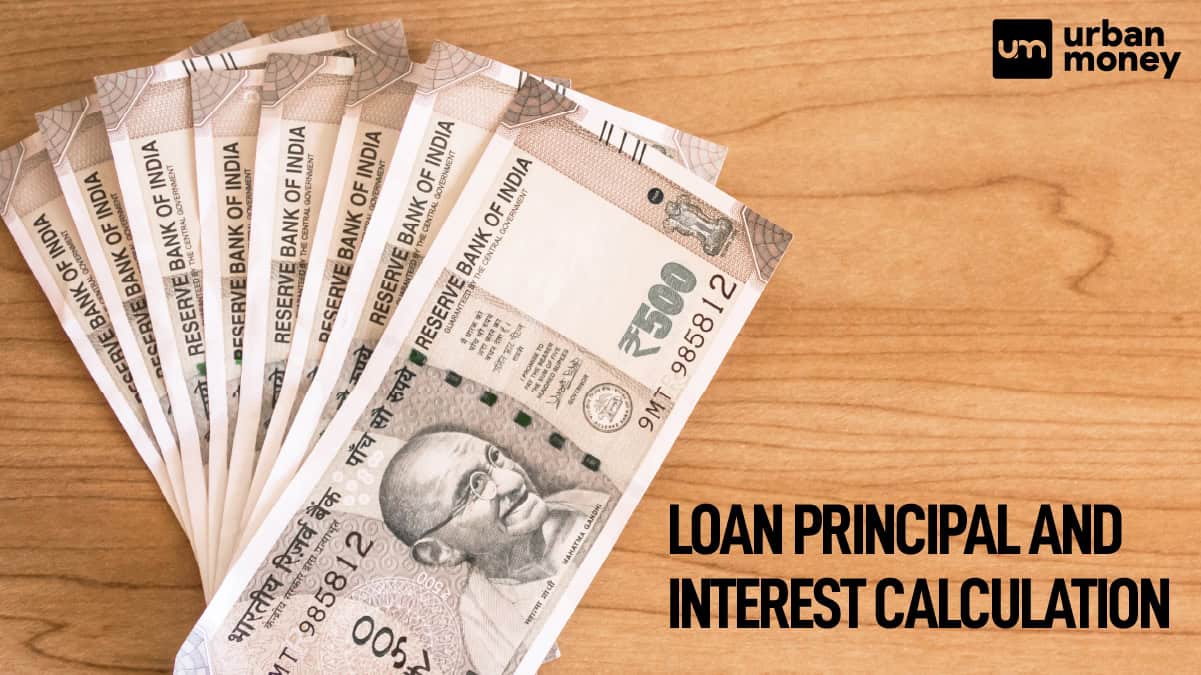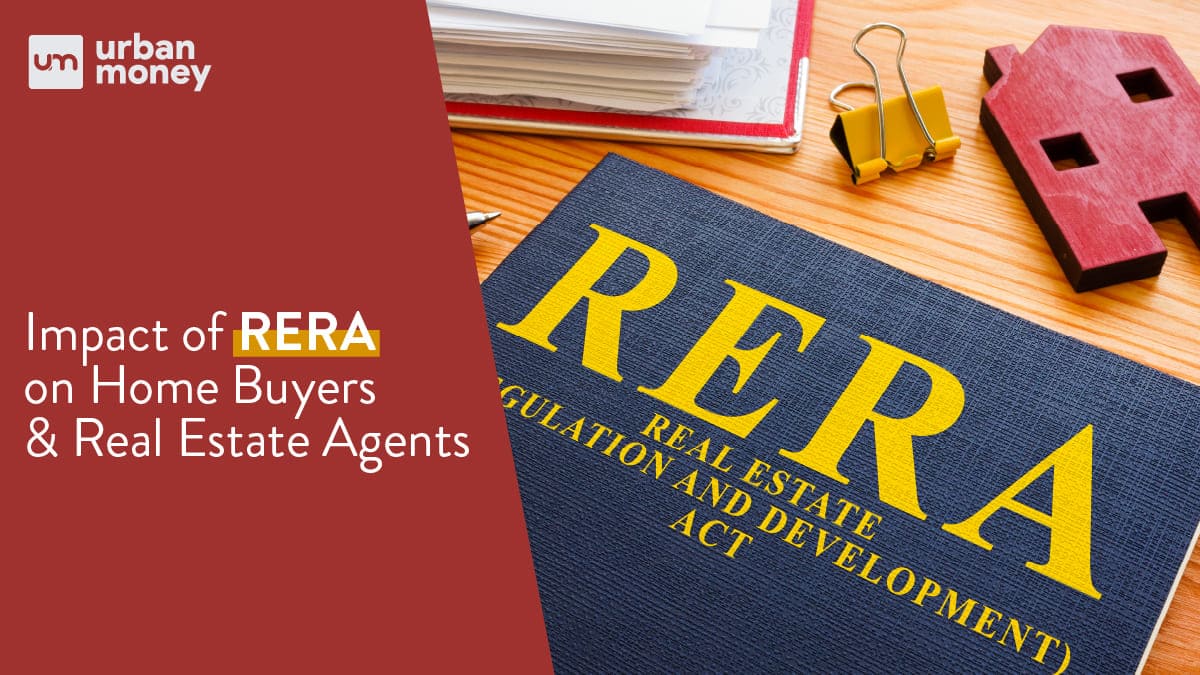Top 10 Best Private Banks in India List 2025
January 09, 2025
Home Loan Archive | Composite Loan: Features, Benefits, and Considerations

July 30, 2024
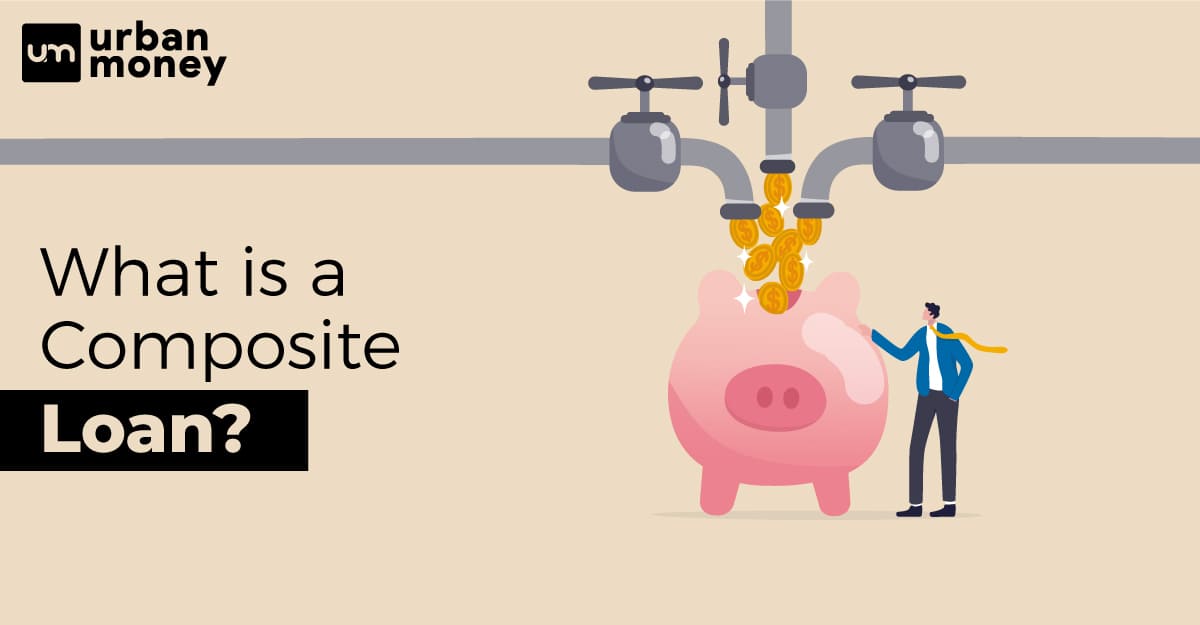

Composite loans have become a popular option for homebuyers in India looking to purchase a property. These loans combine the benefits of a home loan and a personal loan, allowing borrowers to finance their entire property purchase, including ancillary expenses such as registration fees, stamp duty, and other charges. This type of loan can be especially helpful for first-time home buyers or those purchasing a property for investment purposes, as it provides greater flexibility and ease of access to funding. In this blog, we will get down to the details of a plot construction composite loan in India.
Table of Contents
Toggle| Bank Name | Interest Rate | Loan Amount | Tenure | Processing Fee | Fees / Charges |
| State Bank of India | 8.70% | Rs. 50,000 – Rs. 15 crore | Up to 30 years | 0.40% of loan amount + GST | Nil prepayment charges for floating-rate loans |
| HDFC Bank | 8.60% | Up to Rs. 75 lahks | Up to 20 years | Up to 1.50% of loan amount + GST | Nil prepayment charges for floating-rate loans |
| ICICI Bank | 7.85% | Up to Rs. 10 crore | Up to 30 years | Up to 0.50% of loan amount + GST | Nil prepayment charges for floating-rate loans |
| Axis Bank | 7.75% – 8.55% | Up to Rs. 5 crore | Up to 25 years | Up to 1.00% of loan amount + GST | Nil prepayment charges for floating-rate loans |
| Punjab National Bank | 8.45% – 9.95% | Up to Rs. 10 crore | Up to 30 years | Up to 0.50% of loan amount + GST | Nil prepayment charges for floating-rate loans |
| Bank of Baroda | 7.50% – 9.50% | Up to Rs. 1 crore | 3 to 10 years | Up to 0.50% of loan amount + GST | Nil prepayment charges for floating-rate loans |
| Canara Bank | 7.95% – 9.95% | Up to Rs. 10 crore | Up to 30 years | Up to 0.50% of loan amount + GST | Nil prepayment charges for floating-rate loans |
| Union Bank of India | 7.50% – 8.95% | Up to Rs. 10 crore | Up to 30 years | Up to 0.50% of loan amount + GST | Nil prepayment charges for floating-rate loans |
| IDBI Bank | 8.10% – 8.80% | Up to Rs. 10 crore | Up to 30 years | Up to 1.00% of loan amount + GST | Nil prepayment charges for floating-rate loans |
| Central Bank of India | 7.45% – 9.00% | Up to Rs. 10 crore | Up to 30 years | Up to 0.50% of loan amount + GST | Nil prepayment charges for floating-rate loans |
A composite loan is a type of loan that combines multiple types of loans into a single loan. This means that instead of having several loans for different purposes, you can have one loan that covers all your needs. For example, if you want to purchase a plot and construct a house, you might need to take out a home loan and a construction loan separately. With a composite loan, you can combine these two loans, simplifying your repayments and reducing your overall interest rate.
A composite loan involves a combination of multiple loans that can cater to varying needs in single borrowing. The various loans that can be clubbed together include a personal loan, a car loan, or a home loan. Additionally, the interest rate offered will be averaged out of both schemes. This means the Composite Loan interest rate will be common for the entire loan. Furthermore, the following aspects come into play as well.
Comparing composite loans from different lenders can be a complex process as each lender may have different terms, interest rates, fees, and other factors that can impact the overall cost of the loan. Here are some steps you can follow to compare composite loans from different lenders:
Some benefits of a composite loan, also known as a combination loan or a split loan, for home buyers are explored below.
The eligibility criteria for a composite loan can vary depending on the lender and the specific loan product. Generally, lenders will look at the borrower’s credit history, financial stability, and ability to repay the loan.
Some common eligibility requirements for composite loans are:
Composite loan are popular among homebuyers who want to avoid the hassle of managing multiple loans. However, to procure them, applicants will have to submit certain documents along with their application.
Here are the documents required for composite loans for home buyers:
Here are the steps home buyers can take to apply for a composite loan:
Look for lenders that offer composite loans and compare their rates, terms, and fees. You can also consult with the above list for the best banks to look out for composite loans in 2023.
Check if you meet the lender’s eligibility requirements, which typically include a good credit score, stable income, and a down payment.
Prepare the necessary documents such as proof of income, tax returns, bank statements, and any other required documents that the lender may request.
Fill out the application form and provide accurate information about yourself, the property you’re buying, and the loans you want to combine.
After submitting your application, the lender will review your information and determine whether you’re eligible for the loan.
If you’re approved for the composite loan, the lender will provide you with a closing disclosure, which details the loan terms, fees, and other important information. Review the disclosure carefully, and if everything is satisfactory, sign the loan documents and close the loan.
Remember, a composite loan can be a good option for homebuyers who want to combine different types of loans to save money on interest and fees, but it’s important to do your research and shop around for the best rates and terms.
Composite loans are a viable option for homebuyers who want flexibility, affordability, and convenience. However, certain common misconceptions may obstruct one from considering that a reasonable option. By knowing these misconceptions, one can make an informed decision about whether a composite loan is right for them or not.
Here are some ways to avoid these misconceptions:
Including a home loan in a composite loan have both advantages and disadvantages, outlined below.
| Advantages | |
| Lower interest rate | Composite loans typically have lower interest rates than individual loans, which can result in significant savings over the life of the loan. |
| Simplified payment | With a composite loan, you only have to make one monthly payment instead of multiple payments on different loans. This can make managing your finances easier and more convenient. |
| Flexibility | A composite loan can be tailored to meet your specific needs. You can choose the loan amount, interest rate, and repayment term that work best for you. |
| Disadvantages | |
| Risk of losing your home | If you include a home loan in a composite loan and you are unable to make your payments, you risk losing your home. This is because the home loan is secured by your property. |
| Longer repayment period | A composite loan typically has a longer repayment period than an individual loan. |
| Higher fees | Some lenders may charge higher fees for a composite loan. This can increase the overall cost of the loan. |
Here are some real-life examples of composite loans for home buyers in India:
Managing payments on a composite loan can be challenging, as it involves making payments towards both the principal amount and the interest. Here are some tips to help you manage payments on a composite loan:
Before taking out a composite loan, it is important to understand the terms and conditions of the loan. This includes the interest rate, the repayment schedule, and any fees associated with the loan.
Create a budget that takes into account your monthly loan payments, as well as other expenses. This will help ensure you have enough money to make your loan payments on time.
Set up automatic payments for your composite loan. This will help you avoid missing payments and incurring late fees.
If possible, make extra payments towards your composite loan. This can help you pay off the loan faster and save money on interest charges.
If you are having trouble making your loan payments, communicate with your lender. They may be able to work with you to find a solution, such as restructuring the loan or providing a temporary forbearance.
Keep track of your loan payments and statements. This will help you ensure that your payments are being applied correctly and that you are not being charged any fees or penalties you are unaware of.
Always make your loan payments on time. Late payments can result in fees and damage your credit score.
Refinancing may be a good option if you have financial goals such as paying off debt, reducing your monthly payments, or lowering your interest rate. However, there are several more factors that you should consider to ensure that you are making the right decision for your financial situation. Here are some things to remember:
By considering these factors, you can decide whether refinancing your composite loan is the right move for you.
| Related Articles |
| Top 10 Best Bank for Home Loan In India |
| Plot Loans for Land Purchase |
| Top Housing Finance Companies in India |
| Commencement Certificate |
| Home Loan Sanction Letter |
The interest rate on a Composite Loan can be affected by various factors, including but not limited to the borrower's creditworthiness, the loan amount and term, prevailing market rates, and the type of collateral provided. Additionally, economic conditions and regulatory policies can also impact the interest rate.
Yes, you can prepay a composite loan, but it is important to check with your lender about any specific terms and conditions related to prepayment. Some lenders may charge a prepayment penalty or fee, so it's important to clarify this before making any prepayments.
A Composite Loan typically has a repayment period of several years, depending on the terms of the loan agreement. The repayment period may be extended, subject to the lender's approval and the borrower's ability to meet the new terms and conditions.
Not only can defaulting on a composite loan have legal consequences, but it can also hamper a borrower’s creditworthiness and incur penalties. To avoid them, it is prudent that one should not miss out on any loan payments. What factors can affect a Composite Loan's interest rate?
Can I prepay a Composite Loan, and are there any charges for doing so?
What is the repayment period for a Composite Loan, and can it be extended?
What are the consequences of defaulting on a Composite Loan, and how can I avoid them?










© 2025 www.urbanmoney.com. All rights reserved.

Need Loan Assistance?

Thank you for showing your interest. Our agent will get in touch with you soon.





